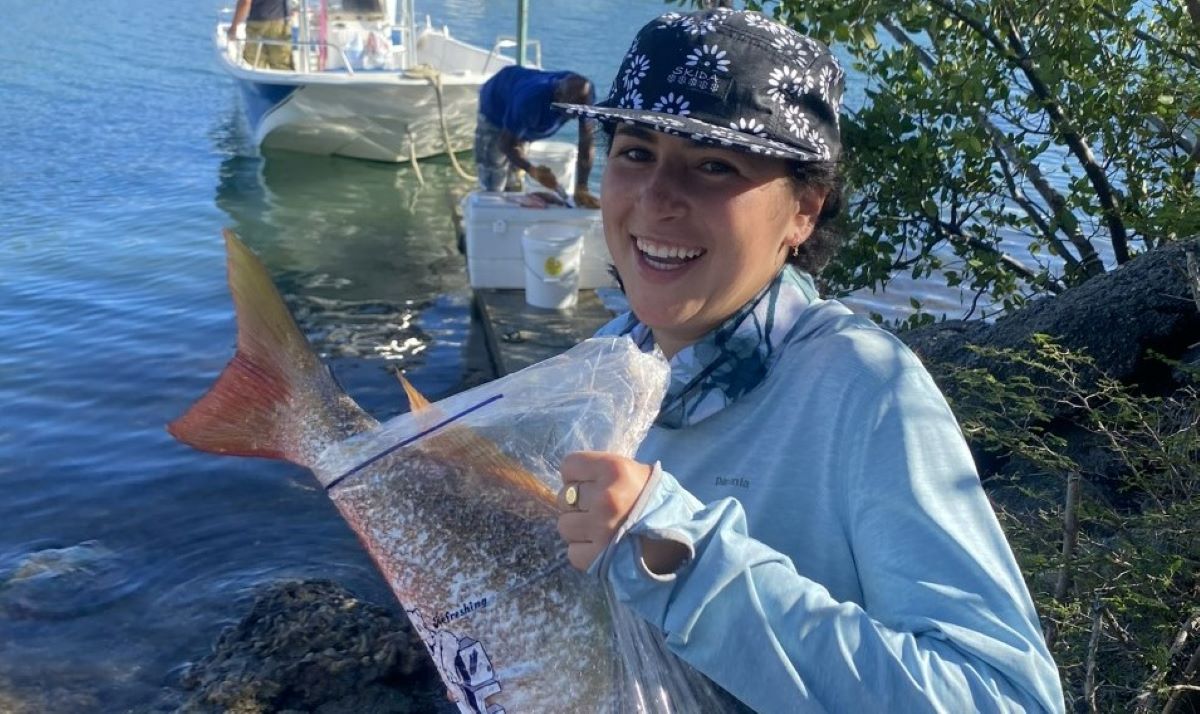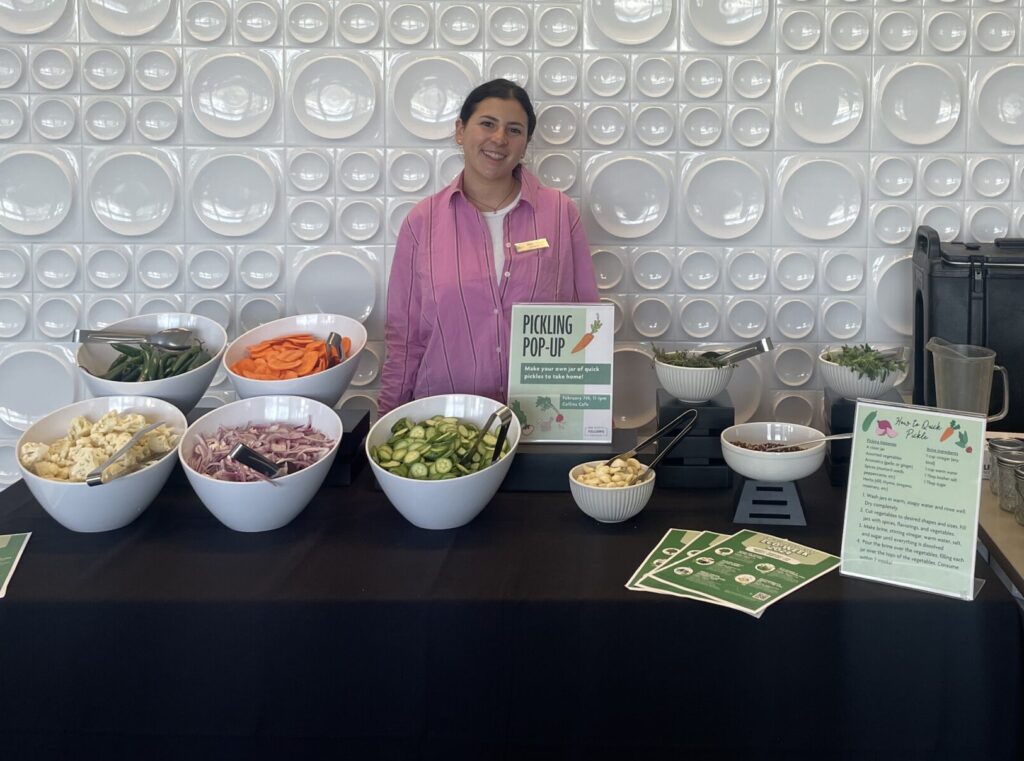Lessons Learned as Bon Appétit’s West Coast Fellow

The past two years as Bon Appétit’s West Coast Fellow have been filled with meaningful connections, growth, and invaluable knowledge about our current food system. Visiting accounts just under 40 times in four semesters, I’ve had the opportunity to learn from a diverse range of people to explore the most pressing issues of the food industry.
Bon Appétit’s operators and chefs, as well as our growers, processors, students, and professors with whom we work have given me insight into a range of perspectives and solutions to a sustainable food future. Here are some insights I’ve gained in my time as a Fellow:
Different political sides, same goals
One of the first things I’ve come to understand about our food system is that agriculture can be a bipartisan issue. Everyone needs to eat, and we all need to find a common solution to make that happen sustainably — today and into the future. I’ve visited institutions with campus values on all sides of the political spectrum who work with small growers and producers with outspoken values that differ from one another. What these parties have in common is that they are looking for a productive way to get food on the table for people.
There is no one clear path forward to continuously feeding our world population, but the people I’ve worked with are coming up with innovative ways to answer this question. Some student groups I worked with advocate for diets based on plant-based proteins to reduce our carbon emissions. However, some meat producers I’ve met utilize meat-raising methods focused on the regenerative conservation of land through grazing. Both distinct parties are coming up with ways to feed the future sustainably, although they are going about it differently.
We need to consider everyone’s voices when thinking about our food system moving forward, and it will take many different approaches to successfully feed the global growing population.

Hillary doing a pickling popup on a campus visit.
Sustainability – easier said than done
As a college student studying environmental policy, I had a very idealistic vision of what sustainability can look like in a corporate environment. While I believe that it is still very important to have lofty goals and rethink systems, it is also important to understand how change is currently being made. I’ve gained valuable knowledge of how to make changes within corporate systems, and other factors that we must consider when making sustainability policies.
For example, Bon Appétit has big goals for food waste reduction, including composting inedible food. But at some campuses composting is not possible, either due to the school not being part of the municipality’s waste services or lacking access to industrial, large-scale composting. This makes it difficult to achieve our waste goals and requires teams to think outside the box, like sending leftover scraps to local pig farms instead.
Having this knowledge and creativity around alternative sustainability solutions is necessary to make food system changes. It’s not as easy as saying “we should just all compost.”
Food connects all of us
While not everyone is thinking about what their next meal is going to be 24/7, like me, the reality is that everyone needs to eat. Because of its universality, food has the power to connect people and be explored through different lenses. During my fellowship, I attended mindfulness, ceramics, writing, history, culinary, and environmental courses to guest lecture or host an activity. We explored food through these lenses, providing a spectrum of entry points for many people regardless of their interests.
This lesson was valuable in my fellowship to help connect with a wide variety of students, not just those predisposed to thinking about food sustainability. Understanding that food has the power to bring people together will serve me in my goals moving forward to continue making positive food systems change. Thank you, Bon Appétit!